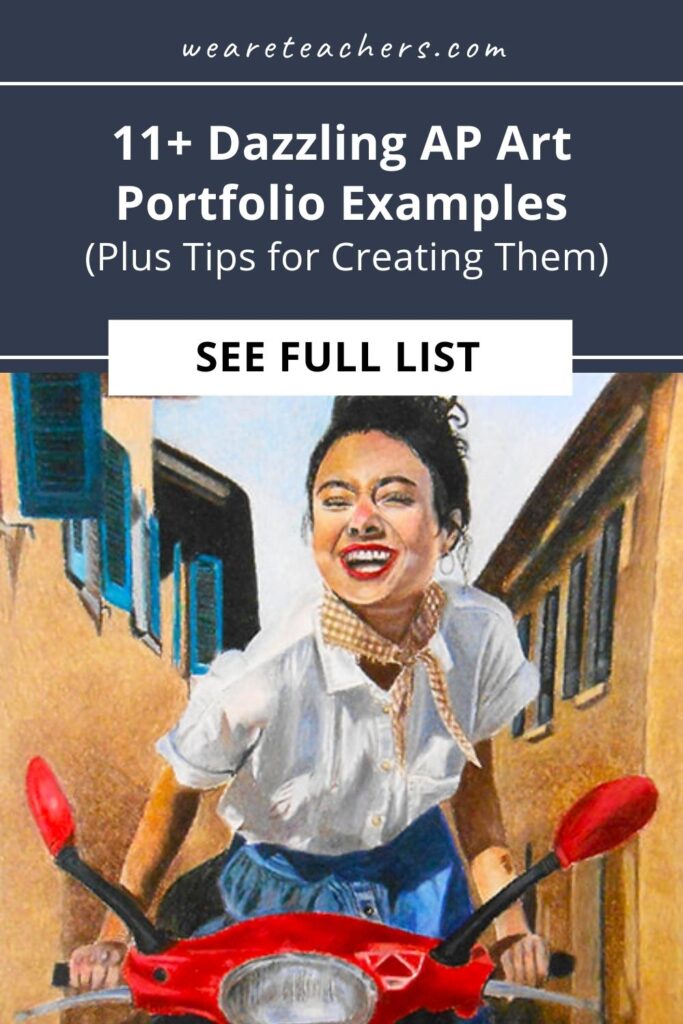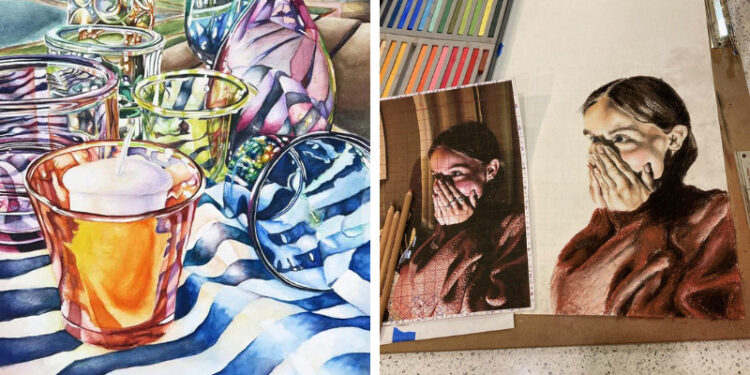Creating an Advanced Placement (AP) art portfolio can be a challenging task for high school students. But it’s also an exciting opportunity to show off their talents. It requires creativity, planning, and a thorough understanding of the requirements set by the College Board. AP art students are typically passionate about art and design, but they’re also often overwhelmed by the portfolio’s complexity. Read on to learn more about the College Board’s current portfolio requirements and scoring criterion, as well as to get tips for creating portfolios, examples of high-scoring AP art portfolios, and insight from the students who created them.
AP Art and Design Portfolio Requirements
The current version of the Advanced Placement (AP) Art and Design Portfolio consists of two sections: Sustained Investigation (60 percent of total score) and Selected Works (40 percent of total score). While the previous version required 24 artworks, the current one requires just 15. Until recently, there was a breadth section that demonstrated student range and provided an opportunity for working with different mediums. The intent with Sustained Investigation is to demonstrate practice, experimentation, and revision through a number of images that seek to answer an inquiry chosen by the artist. While students can submit solely finished artworks, they can also include revision and process images as seen with many AP art portfolio examples. The Selected Works portion consists of five high-quality artworks.
There is also a writing requirement, which includes an artist statement of 1,200 words split into two 600-word sections. Additionally, artists have 100 characters to explain the process behind each work and 100 characters to explain the materials.
While there have been changes to the AP art portfolio requirements in recent years, older, successful portfolios still provide valuable insights.
AP Art and Design Portfolio Scoring
The portfolio, which can be 2D, 3D, or drawing, is submitted digitally and scored from 6 (excellent) to 1 (poor). It provides you the opportunity to earn college credit while showing off your talent. The collection of finished artworks and images should demonstrate your grasp of design and art concepts while also showing the full range of your abilities. Your portfolio should definitely show relationships between materials, processes, and ideas. It will also include written evidence of these things. Check out our tips and AP art portfolio examples before getting started on yours.
Top Tips for Creating an AP Art Portfolio
- Don’t be afraid to revisit artworks.
- Pay careful attention to composition.
- Don’t be afraid to abandon an artwork if it isn’t working.
- Refer to apstudents.collegeboard.org/art-designprogram for the most up-to-date information.
- Show your development as an artist.
- Develop your sustained investigation and theme.
- Take some risks.
Examples From Successful Portfolios
1. A Perfect 6
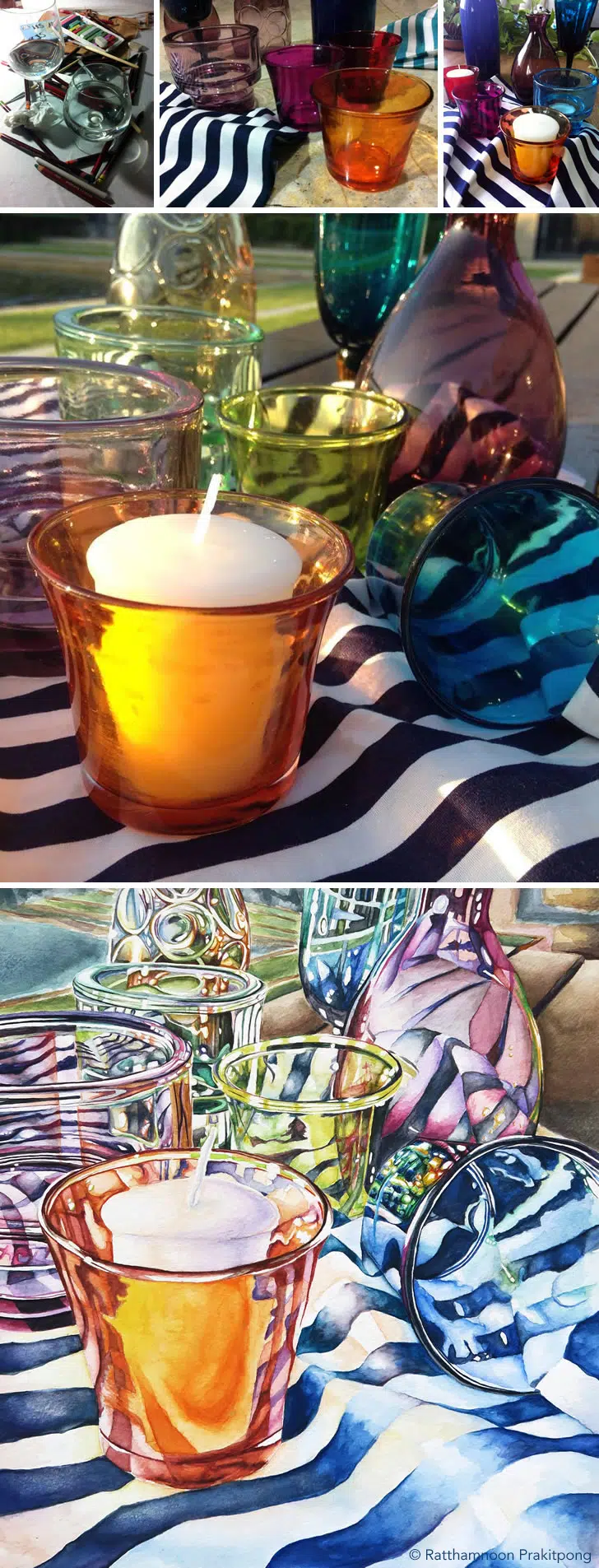
A perfect score on the AP Art Portfolio is very rare but not completely unattainable. Although difficult, student Ratthamnoon Prakitpong earned every possible point in the different sections of his drawing portfolio. Prakitpong gives loads of good advice while providing examples, including before-and-after examples of different artwork. He also recommends drawing inspiration from unexpected places.
Learn more: Student Art Guide
2. A 3D Compilation
This video compilation shows a wide variety of finished 3D artworks but also includes photos showing Cyan D’Anjou’s process. D’Anjou said that most of the concentration section of her portfolio was developed during her final year of high school. In today’s portfolio, this would be akin to the Sustained Investigation portion.
3. A Strong Theme



Once student Alina Rhoadarmer chose childhood memories as the theme for her AP art portfolio, she was able to set out creating a wide variety of artworks that fit that topic. Rhoadarmer explained, “I was constantly developing and redeveloping my question and reinterpreting my topic to create new art pieces.”
Learn more: MVHS Oracle
4. Digital Painting Concentration
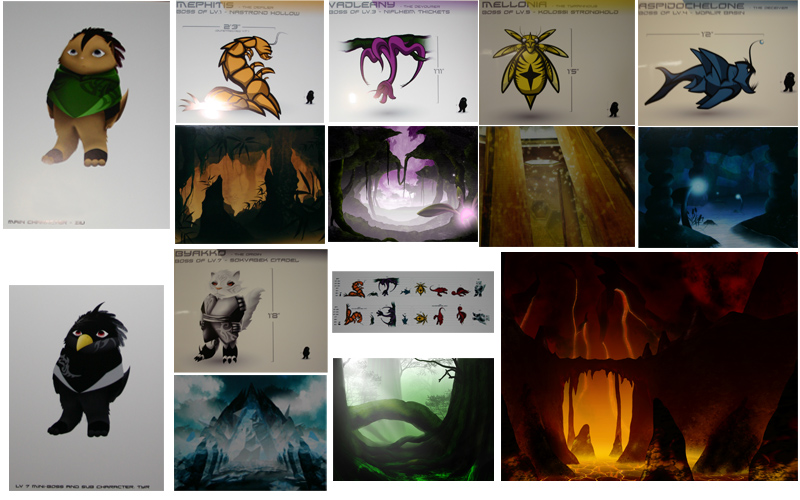
This is an example of a 2D AP art portfolio with more of a commercial focus since it centers around video game concepts and design. Although there are a wide variety of platforms for digital painting, this particular artist used Photoshop. The artist created seven villains and seven levels but made sure to keep the style and environment cohesive. The portfolio expresses the story and concept of the video game while also demonstrating the artist’s range and ability.
Learn more: The Website of Mr. Whipple
5. Three Portfolios, One Artist
While a video compilation of an AP art portfolio is helpful, a video including three is even better! First, we see artworks from a 2D portfolio submitted in 2015 during their junior year. Next, we see a portfolio for drawing from the artist’s senior year. Finally, we see their 2D portfolio from their senior year. Although difficult to do, all three of these portfolios scored a 5 (strong).
6. Artworks With Explanations
Artist/student Conan Gray does a nice job showing his artwork while providing his rationale for each image. Since a still-life can fall flat, Gray recommends incorporating meaning and shares an example of his own still-life that succeeds at that.
Examples of Sustained Investigation
7. Theme: Femininity and Masculinity Through the 20th Century

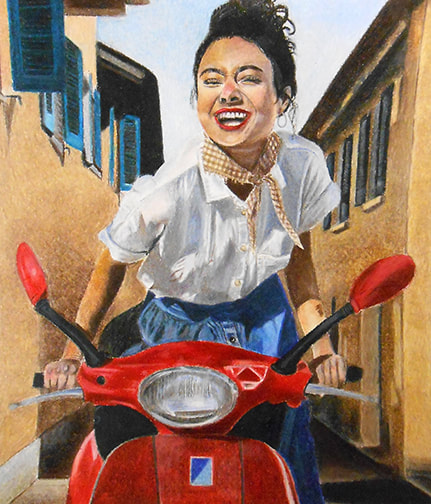


This Sustained Investigation is particularly effective since it not only explores gender but the expression of gender throughout different moments in the 20th century.
Learn more: Elizabeth Saitta
8. Theme: Negative and Positive Effects of Social Media on Self-Esteem
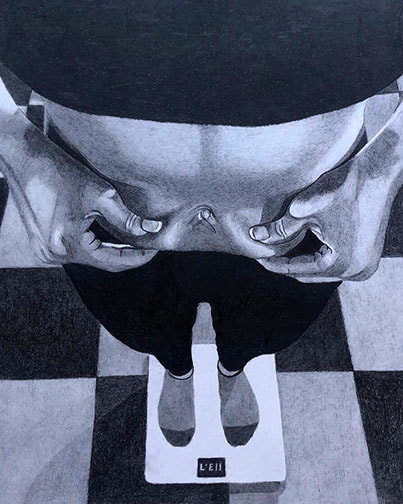
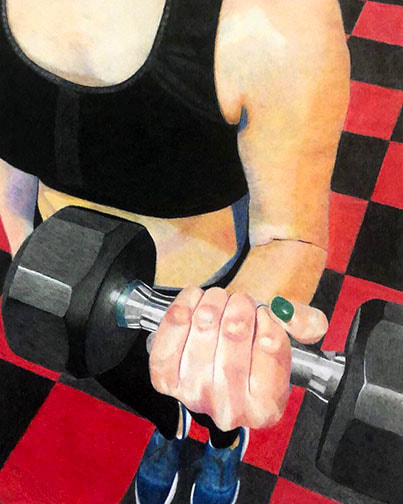
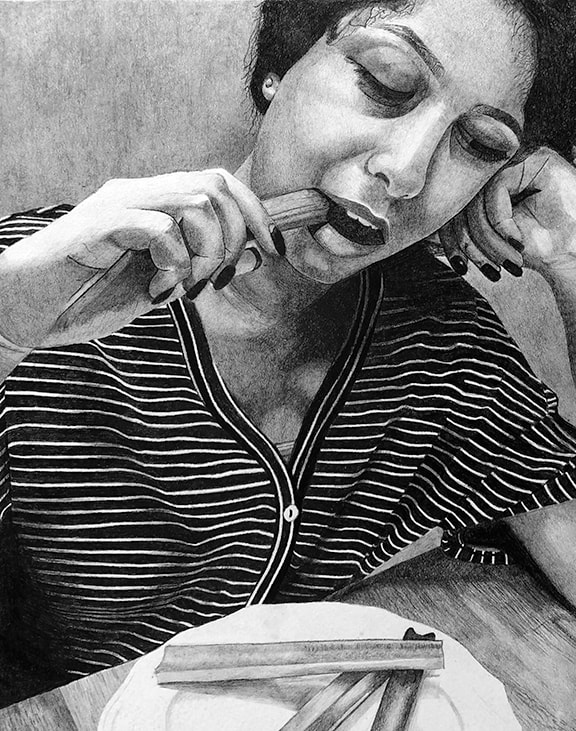
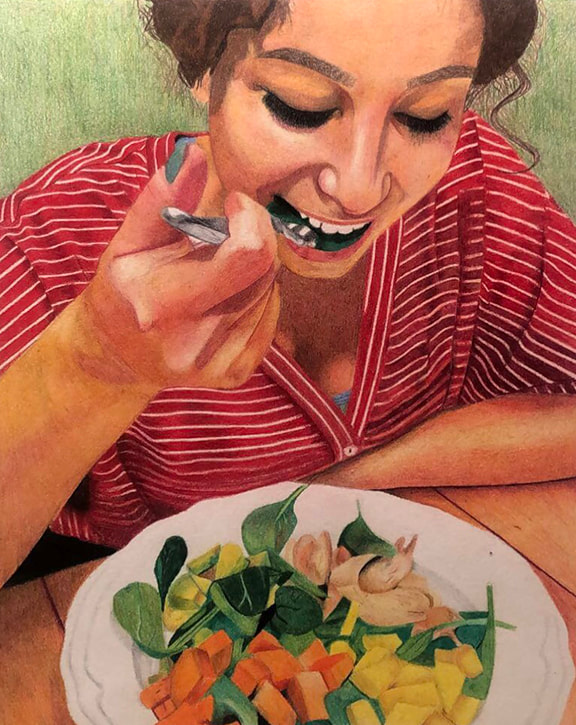
This artist explored the negative and positive consequences of social media on self-esteem. They used color to express positive effects while a lack of color clearly indicates the negative consequences.
Learn more: Elizabeth Saitta
9. Theme: Feeling Comfortable vs. Uncomfortable
Looking at artworks on a given theme is helpful, but having the artist explain their processes and ideas is even better. Artist Karina Singh does a wonderful job of explaining her use of composition and materials to explore her topic of being comfortable versus being uncomfortable. Her work shows a thorough exploration of a theme with ideas ranging from female sexuality, COVID, and family to environmental waste.
10. Theme: Nonverbal Communication
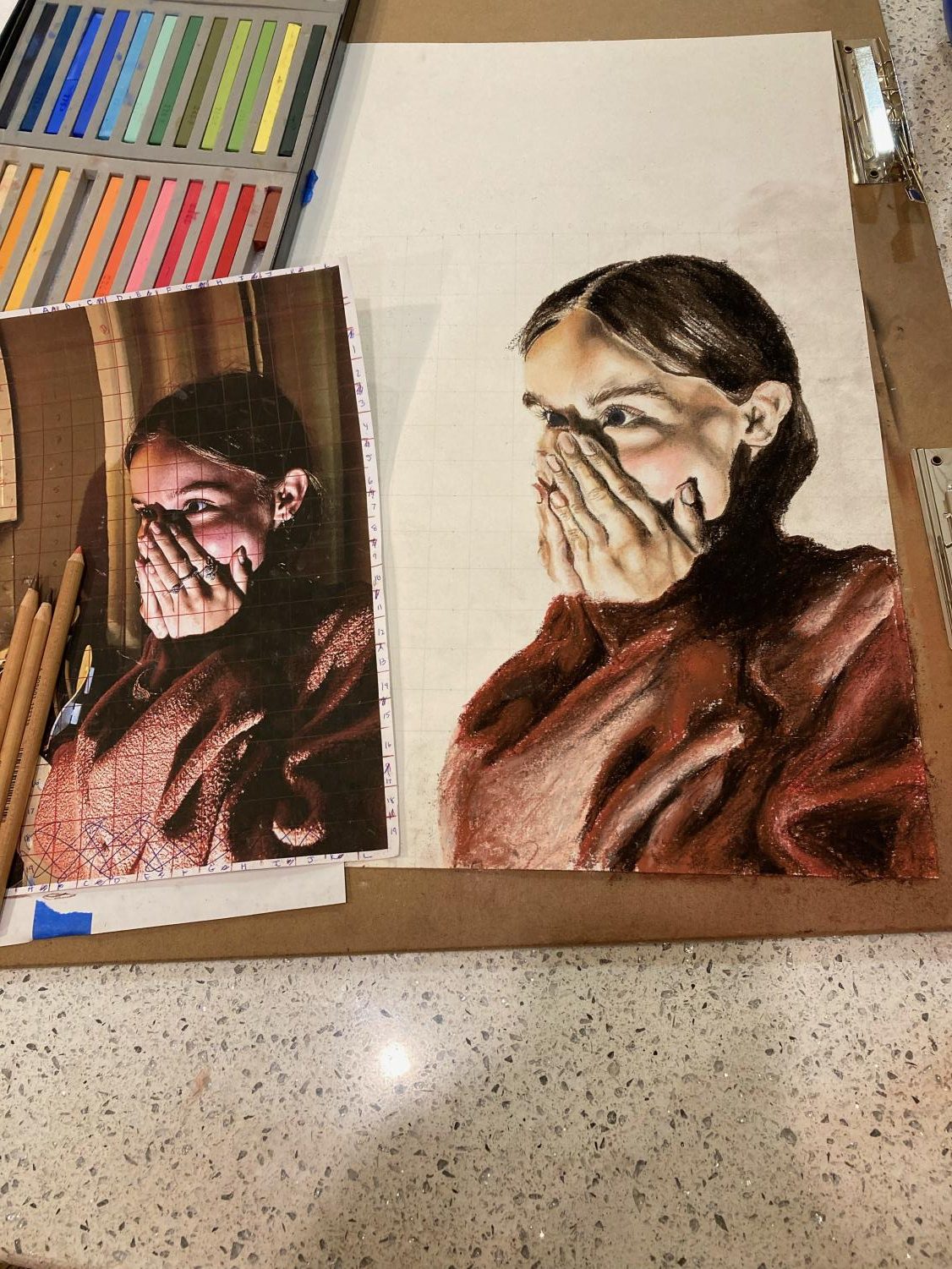
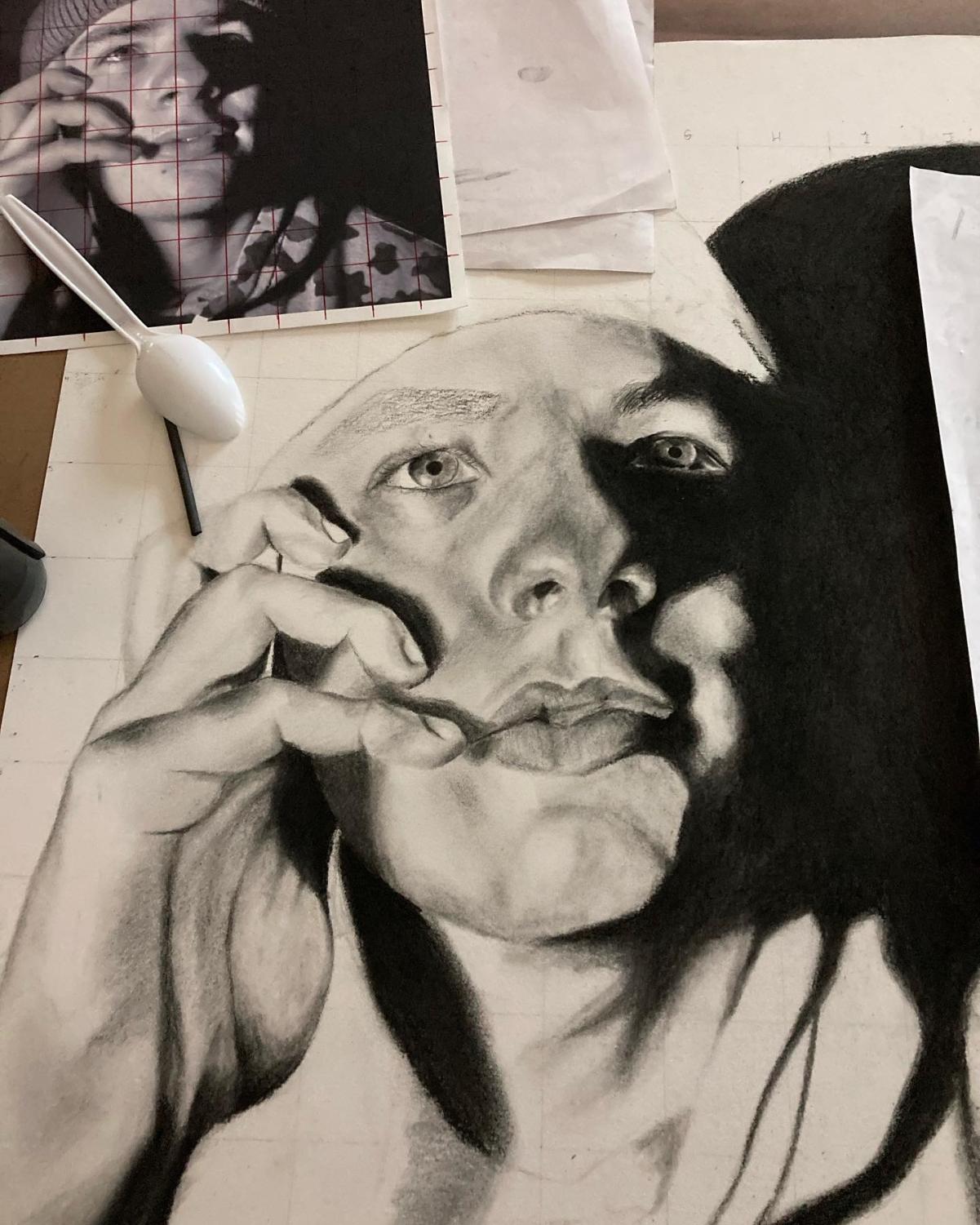
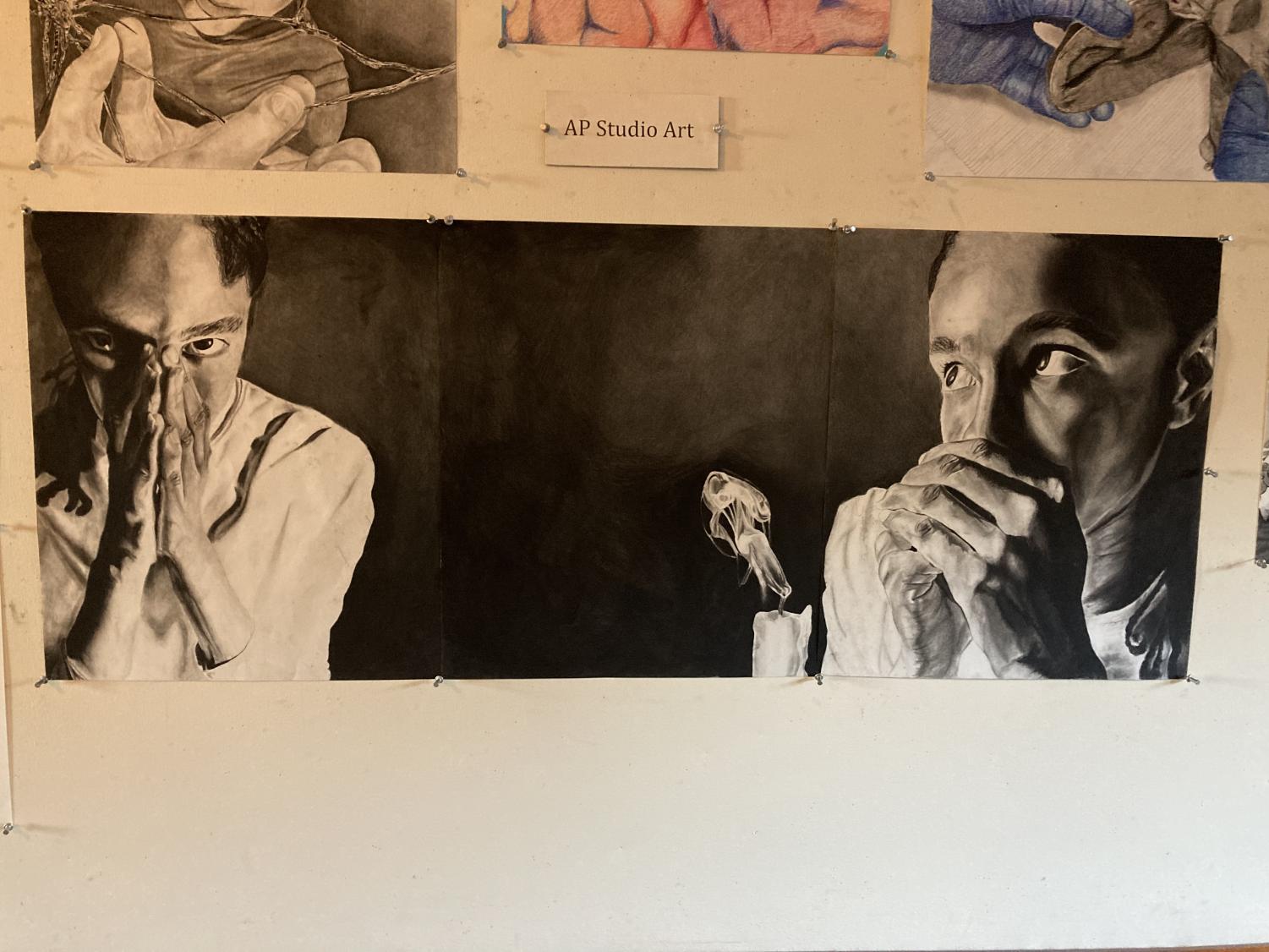
Artist/student Sophie Miller chose nonverbal communication for her Sustained Investigation so she could draw “with elevated contrast.” According to the artist, at least half of her drawing time was done during a free period or at home. Her theme is made undeniably clear through her drawings of people with intense facial expressions and hand gestures.
Learn more: The Dial
11. Theme: Phobias

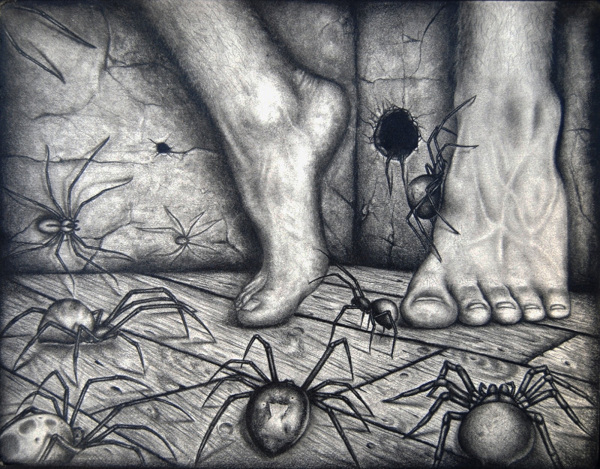
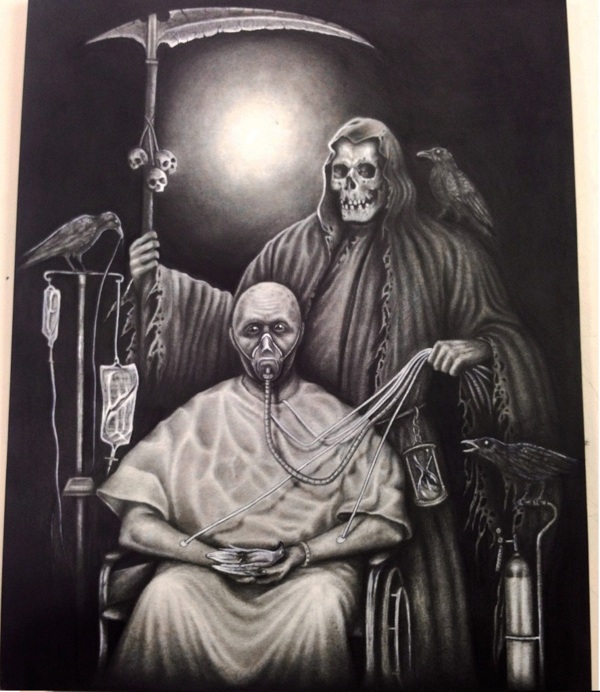
This artist chose a topic that certainly allowed for endless possibilities of subject matter. He showed his range by creating images that represented different phobias while utilizing different materials and mediums.
Learn more: Imgur
Other Ideas for Sustained Investigation
- Abandonment of people and places
- Evolution of illness
- Human influence on the environment
- Effects of social media
- Reflections on various surfaces
- Depression
- Close-ups (food, body parts, etc.)
- Effect of corporate advertising on human psyche
- Painting friends in different historical eras
- Voyeurism
- Modernization of famous fairy tales
- Wood cuts based on Japanese printmaking
- Found-object sculptures
- Exploration of clothing across cultures
- Road trips
Examples of Low-Scoring Portfolios
Seeing examples of high-scoring and well flushed-out portfolios is helpful, but it can also be useful to see examples of what not to do. The AP College Board posts examples of low-scoring portfolios while including the rationale behind the scores. See below for some examples of portfolios that only scored a 1.
- 2-D Portfolio Example 1/AP Central/College Board
- 2-D Design Portfolio Example 2/AP Central/College Board
- AP Central/College Board/Sustained Investigation
You can also find examples of complete portfolios that scored high on the 2022 portfolio exam as well as more scoring commentaries at the AP Central College Board website.
Interested in being an art teacher? Check out Teaching Portfolio Examples That Will Get You Hired.
